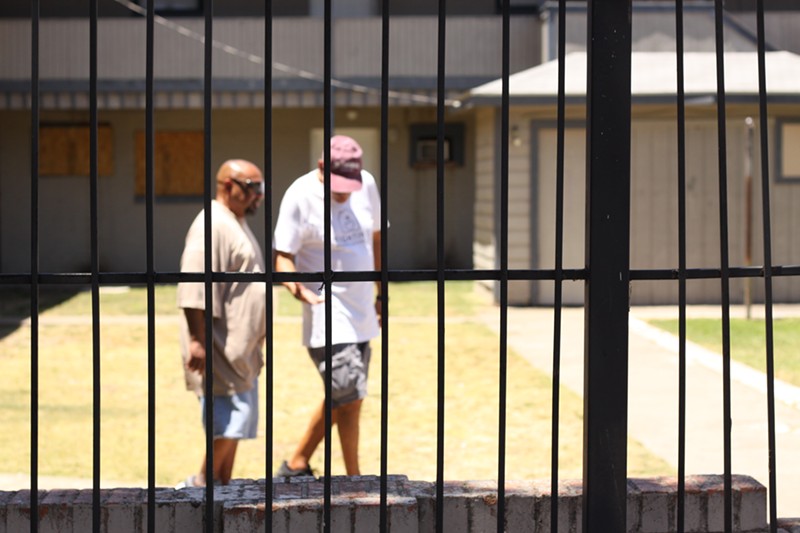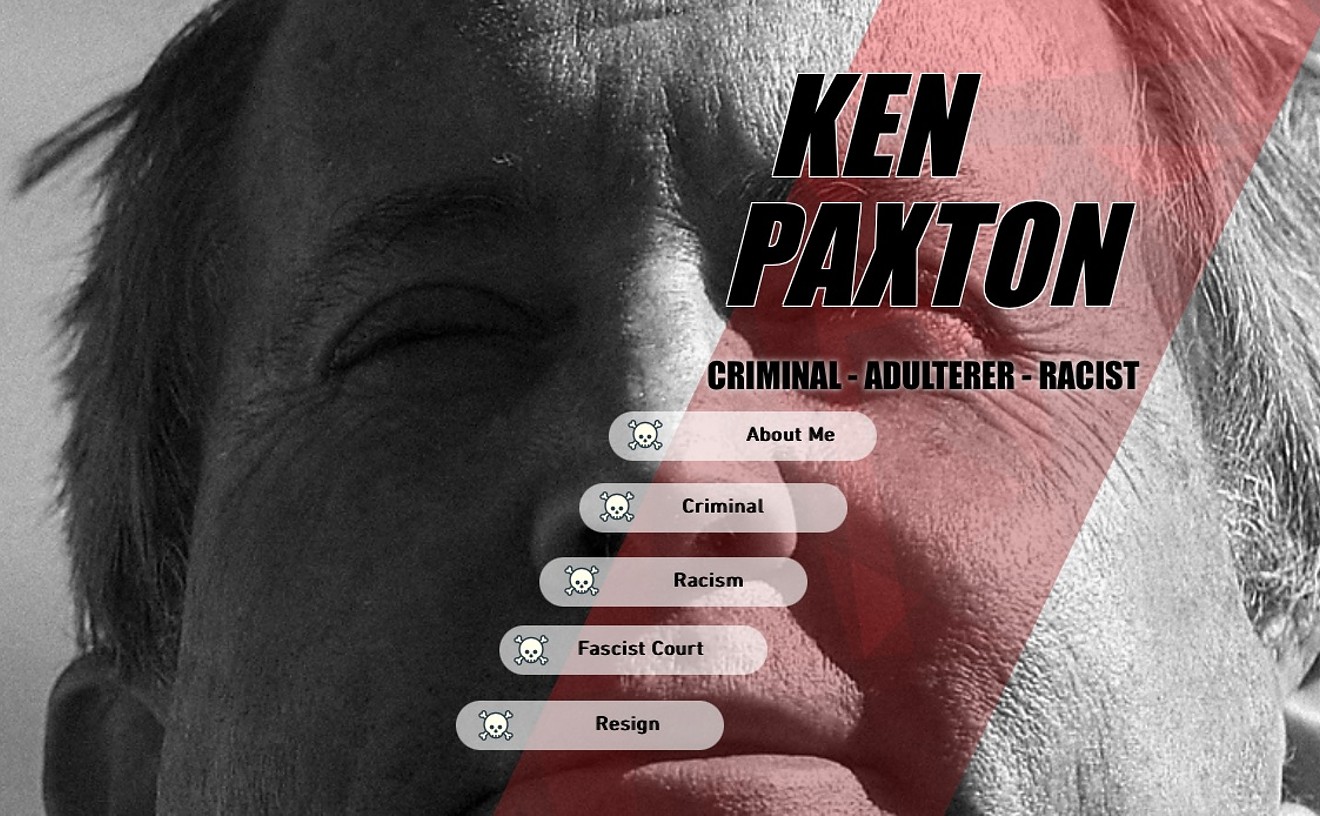“It’s not how the law is supposed to work, but it is how the law actually works, at least when we’re not there,” Melton said.
Melton, his wife, Lauren, and a team of lawyers make up the nonprofit Dallas Eviction Advocacy Center. Melton and his wife founded it in 2021 to help people facing eviction. They want to defend every tenant facing eviction who doesn’t already have representation. Though the nonprofit was founded last year, the Meltons have been doing this work since 2020, helping some 10,000 people stay in their homes.
Melton explained how some judges handle these cases. “If you don’t know the right questions to ask this landlord to prove up your defense, then you’re evicted,” he said. “If you were on trial for murder, this is the equivalent of the prosecutor walking up to the judge as a non-lawyer and saying ‘He did it,’ and the judge going ‘All right. Guilty.’ You didn’t submit a single piece of paper as evidence. You didn’t call a single witness.”
Often, no evidence is presented at all. Most representatives for the landlords will say only that an eviction notice was posted without having to provide proof. “They’ll look at their file and go, ‘Oh, it says [the eviction notice] was taped to the inside of the door,’” Melton said, adding that when asked for proof, the landlords’ cases usually fall apart.
When Melton or another attorney on his team asks how the landlord's legal counsel can be sure the process is accurate, he said, the counsel will usually have no clue.“Well, it’s always been an unfair fight, just in the other direction." – Mark Melton, attorney
tweet this
Melton will ask whether the landlord is in court or whether there are witnesses to back up the claim that all the proper steps were taken to legally evict the tenant. The answer is usually no. The landlords' attorneys just show up with a file that says they went about the eviction process legally, “which doesn’t prove a goddamn thing,” Melton said. “If we’re there, we say, ‘Well, that’s not evidence. That’s just your file. If you can’t prove up your case and provide evidence that you did the things that the statute requires to evict, then you don’t get your eviction.”
Landlords have been changing some of their eviction practices since Melton and his team have started defending people against them. They’ll often hire private companies to help process these evictions. Melton said some call these companies “eviction agents.”
“I don’t know if this is a policy or if this is just what they all do, but the second we walk up and say ‘We’re representing this tenant,’ they immediately ask for a continuance so that their client can hire counsel,” Melton said. “Some people might look at that and think ‘Sounds reasonable. You brought a lawyer. I guess I should go get a lawyer. Otherwise it’s an unfair fight.’”
But that doesn’t sit well with Melton.
“Well, it’s always been an unfair fight, just in the other direction,” he said. “The last time I saw a judge grant a tenant a continuance was never. But they grant them as a matter of course to landlords every time they ask.”
Continuance or not, the landlords have worthy opponents in Melton and his team. According to Melton's tally, he and his partners win about 97% of the cases they take on. That’s 1,400 cases just this year.
But, the Meltons want to expand their services even further. They want to saturate the courts to defend people against every eviction in the county. Right now, they have five full-time lawyers. “We think we need to get to about 15 [lawyers] to really hit what we deem to be full saturation,” Melton said. That would be enough to have attorneys in every justice of the peace court (where evictions are processed), to take on appeals (which are taken up in different courts) and handle other related litigation.
At full saturation, the Meltons believe they can prevent thousands of people from becoming homeless each year and change eviction practices of landlords. “So, you kind of turn the spigot off so that the people that are dealing with homeless populations can focus on that without it growing because that’s the problem,” Melton said. “You save one and ten more people drop down into the system.”
It can be an uphill battle, Melton said, especially when judges don’t want them in their courts. “We’re running into problems where the judges are getting pissed,” he said. Some have put their foot down, saying the Dallas Eviction Advocacy Center can’t defend people unless they have a letter of representation on file with the court before the day begins. This would bar the team of pro bono lawyers from picking up clients in court on the spot, “which is cruel,” Melton said. “Are we going to comply? Absolutely not.”
Judges could decide to hold Melton in contempt and throw him in jail. That’s a risk he’s willing to take. Lawyers in other cities have reached out to Melton to shadow what his nonprofit is doing. Some have suggested Melton take the work statewide. First, he wants to prove his methods in Dallas County.
A lack of housing across the country has sent rent prices soaring, which means more tenants could be on the brink of eviction. A few things in the pipeline could help boost the housing supply across the U.S. and lower prices.
For example, the U.S. Department of the Treasury issued new guidance for state and local governments to make it easier for them to use American Rescue Plan funding to boost the supply of affordable housing. But, it’s still uncertain how effective state and local governments will be, even with the new guidance, Greg Brown, senior vice president of government affairs at the National Apartment Association, told the Observer by email.
“The latest Treasury guidance – which makes it easier for state and local governments to use American Rescue Plan (ARP) funding to address the nation's affordability crisis – is certainly a significant step in the right direction,” Brown said. “Ultimately, the impact of the administration's announcement will depend on the level at which states and localities follow the guidance and take action accordingly to boost the supply of critically needed housing stock at all price points.”
Even if there were enough housing, someone with Melton’s team will likely always be around in Dallas County to defend tenants who stand to lose their home. The Melton team looks forward to the day that they lose more cases than they win because that will signal a change: that fewer landlords are filing unlawful evictions.












